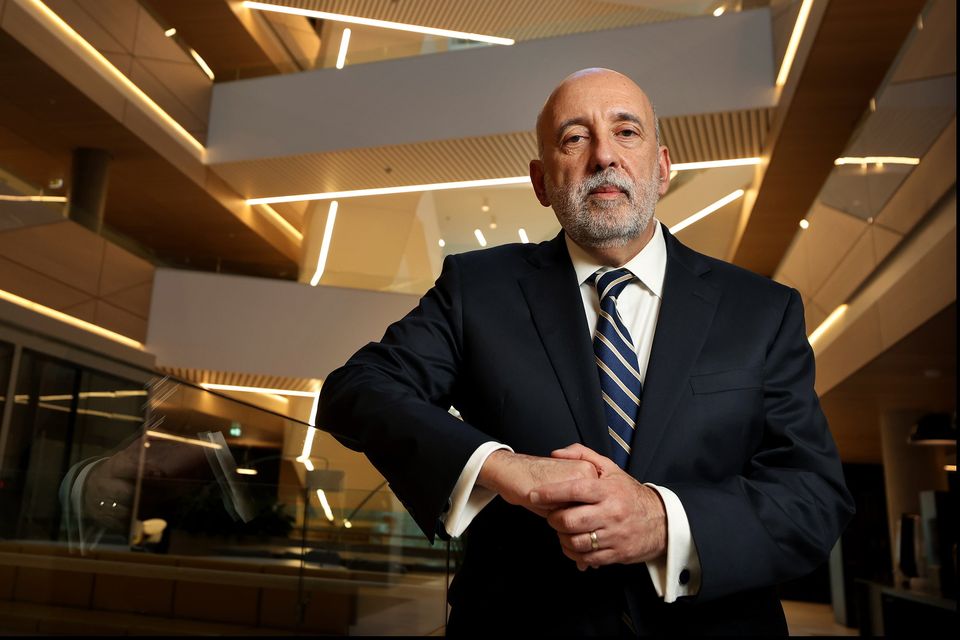Central Bank warns full hit of sharply higher interest rates has not yet been felt
Governor of the Central Bank of Ireland Gabriel Makhlouf. Photo: Steve Humphreys
Economic growth is slowing, risks are rising and becoming more visible, commercial property prices have dropped by a fifth and inflation is still worryingly high, the Central Bank has warned.
Governor Gabriel Makhlouf said the inflationary surge, that has piled pressure on households and business since 2021, has fallen in many economies but remains above target. He warned that the full impact of higher interest rates aimed at taming the trend have not yet have been fully felt.
“The lagged effect of monetary policy actions remains a source of uncertainty for the domestic economy, as the financial system continues to pass through higher interest rates gradually to borrowers and depositors.
Today's News in 90 seconds - November 23rd
The bank’s second Financial Stability Review of this year says the economy has continued to expand but at a slower rate and while inflation has fallen.
The full impact of higher interest rates still lies ahead, it warns. Even ahead of that there are what are described as tentative signs of a slowdown in export flows and corporation tax receipts, it notes. In both cases that slow down follows years of growth.
The downbeat assessment comes despite Ireland recording record numbers of people in work this year but it follows a warning from the European Commission the country is on course to have entered recession this year, when final gdp numbers are tallied.
The Central Bank is not predicting recession here, though updated forecasts next month are likely to see it has a higher risk than previously thought.
“The Irish economy has proven resilient to the inflationary shock, although some previously identified risks are crystallising and the full impact of higher interest rates still lies ahead,” the Review says.
Inflation, which has been a major issue across the economy over the past two years is falling, at so called headline level, but it says underlying inflation is proving more persistent.
“The global economy continues to face higher interest rates for longer than previously expected, raising risks across financial markets,” the review said.
Figures last week from the European statistics agency, Eurostat, showed a sharp drop in inflation in October prompting financial markets to pile on bets the ECB will cut interest rates next year, but central bankers are keen to play that down, fearing an expectation of lower rates will reignite inflation.
At household level the Central Bank review said conditions continue to prove resilient and benefit from robust income growth, low debts and prudent borrowing, although there are early signs of repayment challenges for some vulnerable borrowers and a warning the worst may be yet to come.
However, Governor Makhlouf said so far the economy has been able to withstand pressure to date.
“Despite these emerging signals of risks crystallising, the domestic household, business and banking sectors continue to demonstrate resilience in aggregate, with a strong labour market being a key factor. Low levels of debt, prudent and appropriate macroprudential policy, and the fixed borrowing costs for many are also supporting resilience to the shock.”
While bank profits have increased on the back of the higher interest rate environment, he warned it may not last.
Join the Irish Independent WhatsApp channel
Stay up to date with all the latest news















